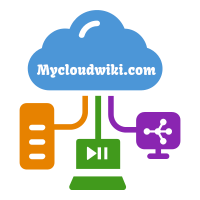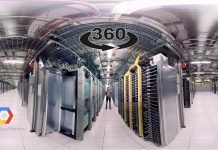In the previous post, we understood the concepts of storage device, storage arrays and IT Datacenter. We also understood the various components of IT datacenter, how it is constructed and the overview of Software defined Datacenter.
In this post, we quickly review the key characteristics of an IT datacenter and the tasks needs to performed by IT staff to run the IT datacenter smoothly.
Key Characteristics of IT Datacenters
Organizations or Businesses which construct the IT datacenters should ensure that the below key characteristics are met.
Advertisement
- Manageability: Datacenters should provide easy, flexible, and integrated management to automate and reduce manual intervention for repeatable tasks.
- Data integrity: Datacenters should have mechanisms to ensure that data is stored and retrieved exactly as it was received by implementing data integration checks like error correction codes or parity bits.
- Availability: Datacenters should ensure that the data and other IT resources in the datacenter should be available to the business 24/7. Unavailability of information can severely affect business operations which may lead to financial losses and bad reputation.
- Security: Strict security policies and procedures should be established to prevent unauthorized access. Control measures has to be taken to prevent alteration of information.
- Scalability: Datacenter resources (compute,storage,network) and facilities should be scalable to meet the changing business requirements without interrupting business operations.
- Capacity: Datacenter should be able to provide additional capacity and resources to efficiently store and process large and increasing amounts of data either without interrupting the availability or with minimal disruption.
- Performance: Datacenter components should provide optimal performance based on the required service levels.
Also Read: Key Characteristics of Cloud Computing
Datacenter Management
Datacenters should be properly managed by the organisation to make the business running without disruptions. Following management process should be considered to effectively manage the IT Datacenter.
- Planning: Adequate planning has to be done to estimate the amount of IT resources required to support business operations and meet the changing resource requirements. Data collected during monitoring should be leveraged to improve the overall utilization, performance of resources and future resource requirements.
- Provisioning: Proper techniques for provisioning of the resources that are required to carry out business operations has to be established to meet capacity, availability, performance, and security requirements.
- Monitoring: Datacenters should have continuous process for gathering information on various resources in the data center such as monitoring configuration, availability, capacity, performance, and security of resources.
- Maintenance: Generally these activities are performed by IT operations team with a set of standard repeatable activities for operating the data center. This process will ensure the proper functioning of resources and resolving incidents, handling identified problems or issues within the data center and implementing change controls to prevent future problem occurrence.
- Reporting: Monitoring reports has to be generated for performance, capacity, and utilization of resources. This process enables datacenter managers to analyze and improve the utilization of datacenter resources effectively and helps in establishing business justifications and chargeback of costs associated with datacenter operations.
Go To Home >> Storage Basics and Fundamentals
Sponsored Links




